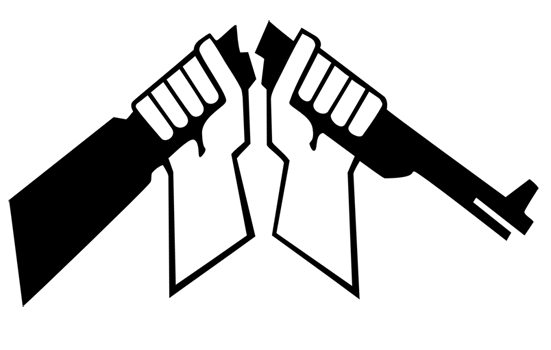Under Finnish law, conscripts may be dismissed from service for health reasons or because they have dual citizenship. Exemption is decided by the army regional offices for those enrolled in the army, while the Non-military Service Center (Siviilipalveluskeskus) for those seeking civilian service. The criteria for granting exemption are basically the same in both the military and the civil service.
The number of those who are exempted has risen sharply in recent years: about one quarter of men in Finland no longer perform any service. The increase in the number of exemptees reflects the erosion of the Finnish military service system: the military service system produces far more soldiers than any realistic military threat would require.
Exemption grounds of health
According to the Military Service Act (Section 10), "a conscript shall be released from service in peacetime if he has a serious disability or illness which prevents him from serving as a soldier, or if his state of health renders him incapable for service for such a period that it is no longer convenient to educate him to be a soldier or he is of risk to service safety."
Release may be granted either entirely in times of peace or for a limited period, not exceeding three years, after which eligibility for service shall be re-examined. Most of those granted a temporary release will later be fully released. If a conscript has never been found eligible for service before the end of the year in which he reaches the age of 25 (and has not been away in call-ups or eligibility checks), he will be exempted for good.
The Civil Service Act (§ 26) provides for a slightly shorter but practically identical provision for exemption: "The Non-military Service Center may exempt a civilian servant who is unfit for performing civilian service in full or for a fixed period of time." The law also states that "the assessment of health status and the determination of eligibility for service must be consistent with those required to perform military service" (Article 23), which means that the criteria for exemption must be the same in both. Exemption from civilian service may also be granted for good in peacetime or for a maximum period of three years. The age limit of 25 years for temporary release under the same conditions as in the military service also applies to civil service (but only to those who have undergone all compulsory checks and who have never been found eligible).
Under current law, the military grants exemption only for peacetime, and the exemptions automatically granted during the wartime are no longer known. In principle, therefore, it is possible that those released from the military service in peacetime would be found eligible for service during the crisis and ordered to serve in the army. On the other hand, those who have applied for and were dismissed from the civilian service are not obliged to serve in the army under any circumstances. However, they could, by law, be assigned to civilian duties under civilian authority during the war, as were other civilian servants.
According to the law, it might be expected that the criteria for granting the exemption would still be relatively stringent. However, their practical application is another matter, and in recent years it has become much looser than before. The number of people released today is almost double than it was before the current Military and Civil Service Law, which came into force in early 2008.
How do I apply for exemption?
Exemption may be granted at call up or at any time after it. In practice, the simplest way to obtain an exemption is to obtain a medical statement in favor of an exemption from a "civilian doctor" (either from a health center or private) and submit it to the call up committee, then to deliver it to the army regional office or to the Lapinjärvi Non-military Service Center for those who are applied for the civilian service. The simplest way is if you are able to submit your medical report to the call-up and get an exemption there. In this case, you will never find yourself worthy of service, but even after your call-up, you can still do it. The final decision on the release shall be made by the call-up Committee or the army regional office or the Non-military Service Center.
As a general rule, those who have given a favorable statement for the exemption shall be exempted, but not necessarily. If you are applying for an exemption from civilian service, it is a good idea to have a statement in your medical report that you are also in favor of an exemption from civilian service (or at least all military service). However, this is not necessary as the criteria for release must be the same for civilian service than for military service.
The army regional office or the Non-military Service Center may also call conscripts inspected by their own doctor before the decision. The eligibility of those who have been called up for military service, but who are applying for exemption before the commencement of service, is usually determined by an additional examination in which personal presence is voluntary. Of course, the military authorities or the Non-military Service Center can also take the decision for exemption on their own initiative.
The statement in favor for exemption must be based on a medical diagnosis defined as the basis for exemption. There are thousands of different diagnoses and they are listed in the army health check guide. The code also applies to civilian service applicants.
If the person seeking for an exemption does not have any physical health-related issues that qualify for an exemption, then it will be psychologically possible. Common psychiatric release criteria include various types of depression, anxiety, and adjustment disorders. For more detailed information on the grounds for exemption, contact the union of conscientious objectors.
If the exemption is not granted despite a favorable medical opinion, you should consider an appeal. An eligibility decision made by the call-up committee or by the army regional office may be appealed against to the army regional office within 30 days of receipt of the decision. An appeal against the decision of the Non-military Service Center (Siviilipalveluskeskus) can be made to the center.
If the situation is not corrected by an appeal, an appeal may be made to the central call-up committee. An appeal against a decision by a Non-military Service Center may be lodged to the Helsinki Administrative Court. If you are planning to complain about a negative exemption decision, contact the Union of Conscientious objectors!
How does the exemption affect later life?
The premise is that it should have no effect. According to the law, exemption is based on the state of health, and putting people in a different position for example based in health reasons is already prohibited by the Finnish Constitution (§ 6), The Equality Act (§ 6), on the other hand, states that differentiation in working life, for example on the basis of health status, constitutes prohibited discrimination. Information about a person's state of health is also, by definition, confidential and may not be disclosed without the permission of the person concerned, even to another healthcare unit or to the employer.
Under the privacy protection act, an employer does not even have the right to inquire whether an employee or applicant is exempt from military service. By law, an employer may only process "personal data that is directly necessary for the employee's employment relationship." On the other hand, the exemption from compulsory military service does not give any indication as to the suitability or unsuitability of the person concerned for a particular job, since the exemption may be based on a variety of reasons. It may also be based on a health problem that has subsequently been completely remedied.
The multiple-choice questions on military service which are still present in some job application forms are therefore illegal, especially if the answer indicates whether the applicant has been exempted (or has completed civilian service instead of military service). If you come across this, you should notify the union of conscientious objectors. Numerous employers have announced that they will give up asking for conscription after we intervened. Usually employers justify the question by saying that they just want to find out if the applicant is about to leave to conduct the service.

